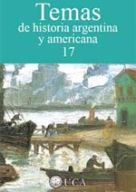Por favor, use este identificador para citar o enlazar este ítem:
https://repositorio.uca.edu.ar/handle/123456789/7133| Título: | En las raíces ideológicas de Montoneros : John William Cooke lee a Gramsci en Cuba | Autor: | Amaral, Samuel | Palabras clave: | PERONISMO; MARXISMO; MONTONEROS; GUERRILLA; HISTORIA ARGENTINA; COOKE, JOHN WILLIAM; GRAMSCI, ANTONIO, 1891-1937 | Fecha de publicación: | 2010 | Editorial: | Pontificia Universidad Católica Argentina. Facultad de Filosofía y Letras. Centro de Historia Argentina y Americana | Cita: | Amaral, S. En las raíces ideológicas de Montoneros : John William Cooke lee a Gramsci en Cuba [en línea]. Temas de historia argentina y americana. 2010, 17 Disponible en: https://repositorio.uca.edu.ar/handle/123456789/7133 | Resumen: | Resumen: Desde 1945 la izquierda argentina no pudo resolver el enigma planteado por el hecho de que la clase obrera era peronista. Varios intentos teóricos fracasaron antes de que John William Cooke hiciera el suyo a mediados de los años sesenta. Influenciado por Gramsci, consideró que la clase obrera es una categoría histórica, por lo que el peronismo era la experiencia histórica de la clase obrera argentina y, como tal, revolucionario. Neutralizó el papel político de Perón convirtiéndolo en el símbolo de la identidad peronista. Por esto, la teoría de Cooke fue clave para que guerrilleros de izquierda se declararan peronistas sin que les importaran las opiniones e intenciones políticas de Perón. Las limitaciones de esa teoría quedaron expuestas cuando el general regresó a la Argentina y fue electo presidente por tercera vez. Abstract: From 1945 onward, the Argentine Left could not solve the riddle posed by the fact that the working class was Peronist. Several theoretical attempts had failed by the time John William Cooke made his in the mid-1960s. Influenced by Gramsci, he found that the working class is not an abstract category but the outcome of a historical experience. So, for him, as the historical experience of the Argentine working class, Peronism as such was revolutionary. In his theory, Perón came to be a symbol of Peronist identity, but not a political actor. Because of that, Cooke’s theory was instrumental for Leftist guerrillas to declare themselves Peronist regardless Perón’s political views and intentions. The shortcomings of his theory came into light when Perón came back to Argentina from his long exile and was elected to a third presidential term. |
Cobertura Espacial: | ARGENTINA SIGLO XX |
URI: | https://repositorio.uca.edu.ar/handle/123456789/7133 | Disciplina: | HISTORIA | Derechos: | Acceso Abierto | Fuente: | Temas de historia argentina y americana. 2010, 17 |
| Aparece en las colecciones: | TEM - 2010 nro. 17 |
Ficheros en este ítem:
| Fichero | Descripción | Tamaño | Formato | |
|---|---|---|---|---|
| raices-ideologicas-de-montoneros.pdf | 473 kB | Adobe PDF |  Visualizar/Abrir |
Visualizaciones de página(s)
2.678
comprobado en 27-abr-2024
Descarga(s)
404
comprobado en 27-abr-2024
Google ScholarTM
Ver en Google Scholar
Este ítem está sujeto a una Licencia Creative Commons

